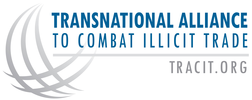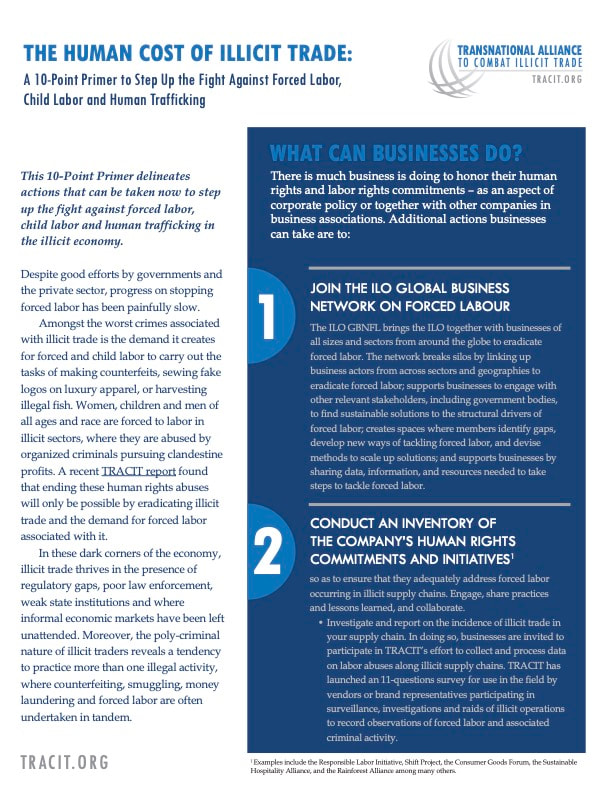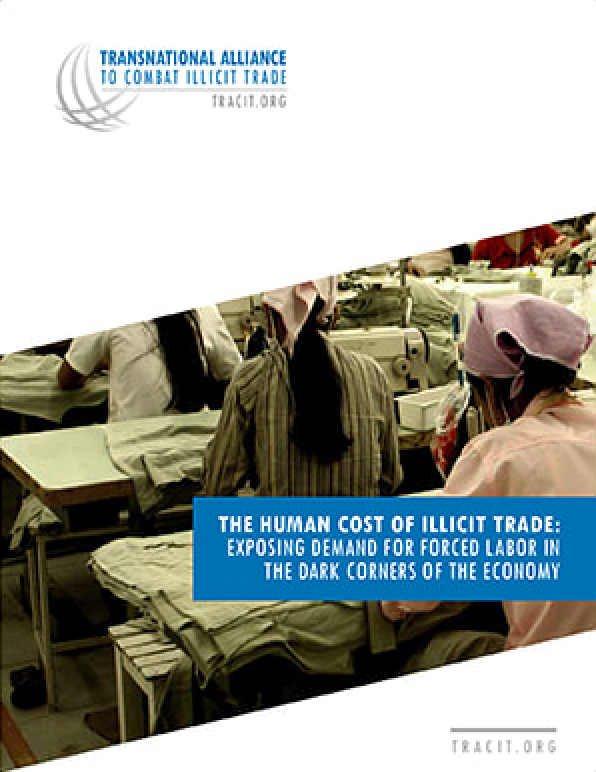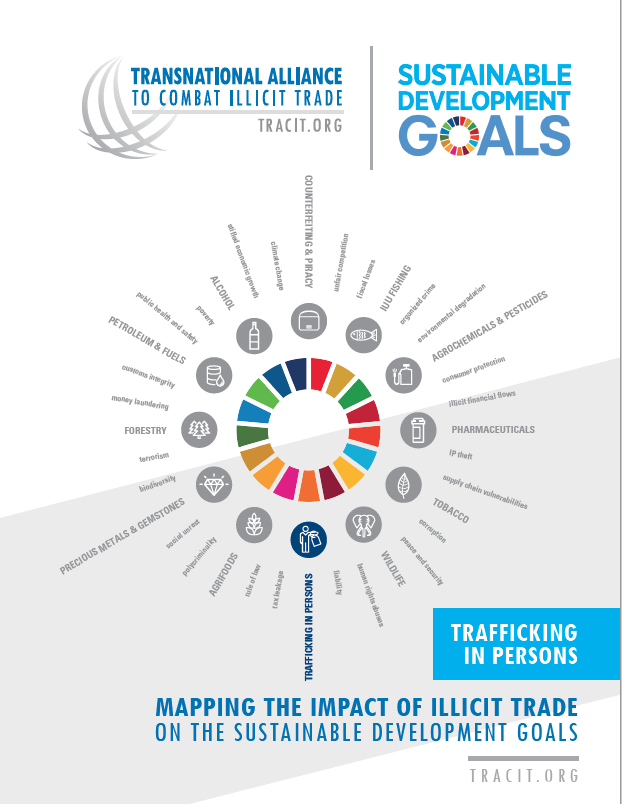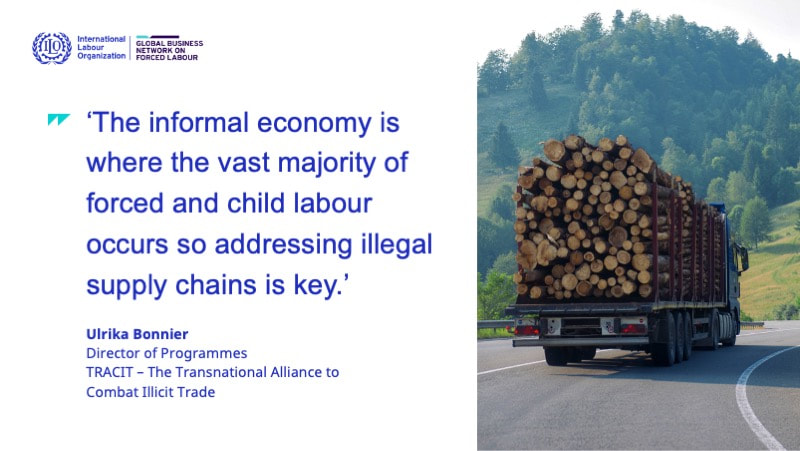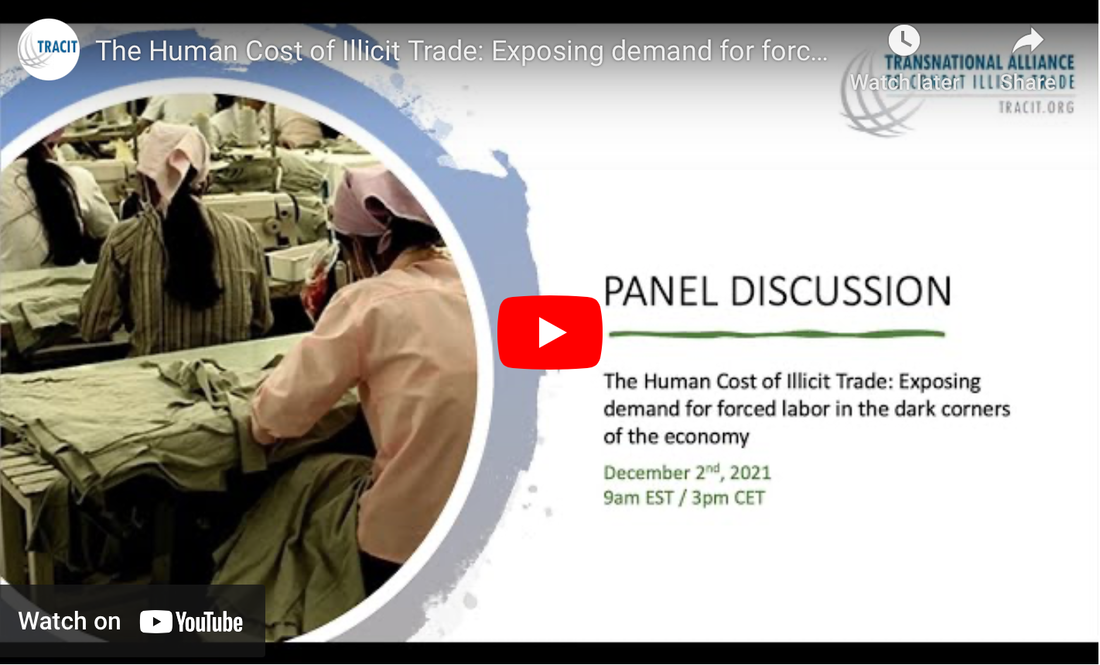Forced labor, child labor and human trafficking
Forced labor, child labor and human trafficking is – as all types of illicit trades – a lucrative form of organized crime and a high-profit, low-risk activity. This human rights abuse represents a failure of nation states and the global community to ensure the security of their citizens. An estimated 27.6 million people are victims of forced labor globally (ILO/Walk Free/IOM, 2022) and trafficked forced laborers produce a total illicit profit of US$150 billion per year (ILO, 2014). A 2019 report by ILO/OECD/IOM/UNICEF attempts to measure the total number of people in forced/child/trafficked labor in global supply chains, and provides a set of recommendations for governments and business.
Forced labor, child labor and human trafficking is an issue in a wide range of sectors that are vulnerable to illicit trade, including but not limited to fisheries, agriculture, manufacturing and mining. In terms of forced labor in the private economy, ILO/Walk Free/IOM found that 32% of forced labor exploitation took place in the services sector excluding domestic work, 18.7 percent in manufacturing, 16.3 percent in construction, 12.3 percent in agriculture, 8.2 percent in domestic work, 1.4 percent in mining and quarrying, and 11.1 percent in "other" defined as begging and involvement in illicit activities. The U.S. Department of Labor has identified 155 goods from 77 countries produced by forced and child labor, including everything from diamonds and cotton to garments and electronics. Women, children and men across the globe are forced to labor in illicit sectors, where they are abused by organized criminals pursuing clandestine profits. In the process of running their illicit operations, they are also hurting legitimate business, slowing economic growth, and pushing the achievement of the SDGs further away. In addition to the severe human rights implications, legitimate businesses cannot compete on a level playing field against criminals that are not paying wages and are abusing their labor force. With illicit trade accounting for an estimated 8 to 15 percent of global GDP, Governments must urgently address the impact that these significant economic activities have on the demand for forced labor. Featured publication
Featured report
Featured report
Affiliations TRACIT is a member of the ILO Global Business Network Forced Labour (GBNFL), an umbrella network of networks offering a forum for collaboration convened by the International Labour Organization (ILO) where business and business networks come together behind a common objective of leveraging comparative advantages and collective action towards the elimination of forced labour and human trafficking. More information can be found at flbusiness.network
|
MEDIA CENTER Trilateral statement against forced labor
TRACIT endorsed the Trilateral Statement by Trade and Labor Ministers of the United States, Japan and European Union to upgrade efforts to fight forced labor. The ministerial statement came in response to new global forced labor estimates from the International Labour Organization (ILO), Walk Free Foundation, and International Organization for Migration (IOM). TRACIT media release on trilateral statement, October 18, 2022 TRACIT letter to Ambassador Katherine Tai, United States Trade Representative, October 17, 2022 USTR Notorious Markets Report 2021 For the first time, the USTR Report focused on the adverse impact of counterfeiting on workers involved in the global production of counterfeits. The report cited research conducted by TRACIT and published in our report at the end of last year. Link to USTR Report TRACIT media release in response to USTR report, February 17, 2022 Featured podcast
|
|
Transnational Alliance to Combat Illicit Trade (TRACIT) is an independent, non-governmental, not-for-profit organisation under US tax code 501(c)(6).
© COPYRIGHT 2024. ALL RIGHTS RESERVED. |
Follow us
|
